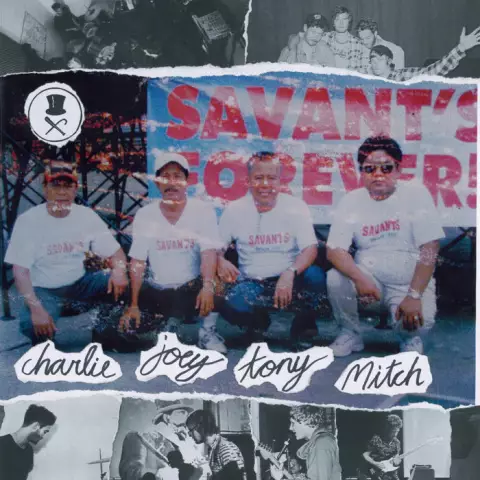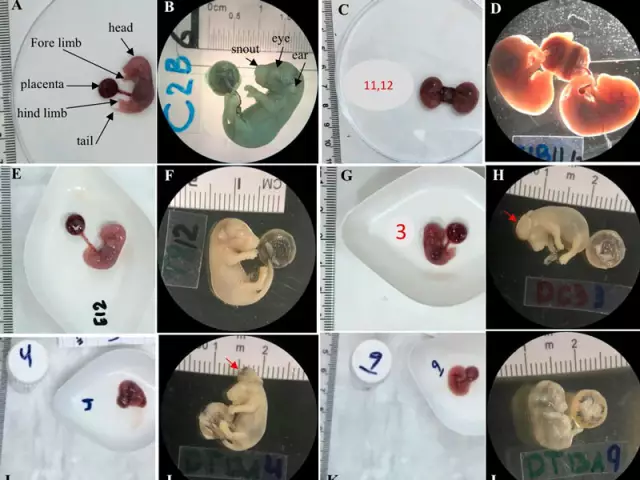- Author Rachel Wainwright wainwright@abchealthonline.com.
- Public 2023-12-15 07:39.
- Last modified 2025-11-02 20:14.
Congenital pathologies and genius: 5 famous savants
The birth of a child is one of the most wonderful moments in a family's life. Unfortunately, sometimes the joy is clouded: not everyone is born completely healthy. A certain percentage of babies enter this world with physical or mental disabilities. The modern approach to the upbringing of special children involves their maximum adaptation to life in society and assistance in disclosing their abilities. Parents and educators are doing everything so that such children can live happily.
But some people who were born with complex, incurable mental disabilities have exceptional talents that are completely unattainable for others. Such individuals are called savants. We would like to tell the readers about several famous savants.

Source: depositphotos.com
Ellen Boudreau
Girls with phenomenal abilities are born about 6 times less often than boys. Ellen Boudreau, an autistic woman who is completely blind from birth, has an extremely strong sound memory. She can play on the piano any melody she heard once.
This is not so unusual: many naturally visually impaired people remember sounds well. Ellen is a savant because she has a highly developed ability to echolocation. She perfectly orients herself in space, using the information that sound waves reflected from objects give. In practice, it looks like this: moving around the house or along the street, a woman quietly mutters or hums and, analyzing the sounds she hears, draws conclusions about the presence of obstacles on the way.
In addition, Boudreau is endowed with an exceptional sense of timing. Despite the fact that she has never seen a clock, Ellen is able to tell the time to the minute at any time.
Stephen Wiltshire
Stephen Wiltshire is 42 years old. He suffers from autism and did not speak much as a child. At the age of 5, Stephen showed a very unusual ability to draw: he reproduces three-dimensional architectural landscapes with photographic accuracy. At the same time, it is enough for the savant to catch a glimpse of the area of any city in order to create its image on a scale, while maintaining all the details and proportions.
Wiltshire draws exclusively with ballpoint pens. Since 2006, a permanent exhibition of his works has been functioning in London. Several author's albums of Stephen have been published, his paintings are highly valued by collectors. Interestingly, at the age of 20, Wiltshire also showed musical abilities: perfect pitch and a wonderful sound memory.
Richard Vouro
In early childhood, Richard was considered mentally retarded, later he was recognized as autistic. By the age of 11, the boy was almost completely blind. After some time, it was discovered that he was gifted - he had a phenomenal memory and amazing artistic abilities.
Vouro began to draw with crayons, but his most notable work is done in pastels. For 53 years of his life, the artist created more than 1000 paintings (mostly landscapes), they are amazingly accurate in terms of depicting details and talented in the selection of colors and shades.
Daniel Tammet
Daniel was born in 1979 in London. From an early age he suffered from autism and epilepsy. Savant abilities acquired at the age of 4 years after a particularly strong seizure.
Tammet possesses exceptional mathematical and linguistic talents. He knows how to perform actions with numbers consisting of 100 or more signs - in his mind, absolutely not straining. Daniel is an outstanding synesthetic: numbers and their sequences are perceived by him as objects, each of which has its own shape, color, sensory qualities. Savant intuitively determines which number is prime.
In addition, Tammet learns foreign languages very easily. For example, he learned Icelandic in just a week. Daniel also invented his own language (Manti), the structure of which has much in common with the languages of the Finno-Ugric group. Tammet writes books, plays chess well.
Daniel Tammet has another feature that is extremely important for science: he is able to trace and explain the path in which he comes to some of his mathematical results (usually savants do not know how to do this). The way Daniel communicates with others is also unique. The fact is that, like most autists, his communication skills are significantly reduced. Tammet has developed a series of conscious actions that help him to behave correctly and not be too different from other people.
Kim Peak
One of the most famous savants. Born with severe organic brain damage, he experienced difficulties throughout his life, without acquiring even the simplest self-care skills. Despite his extremely low IQ, he learned to read and write at the age of about 1.5 years. I read extremely quickly, looking through the spread of the book in a few seconds: I perceived information in parallel from both pages. For 58 years of his life he read about 12 thousand books, and he knew each one practically by heart. He remembered almost 98% of the information from the first time (an ordinary person perceives no more than 35%). I remembered all the tunes I had ever heard.
Kim Peak possessed the most extensive data from the field of sports, space exploration, history, geography (he could in his mind pave a route between any two points located in the United States). I kept in my memory a huge amount of facts related to 15 sections of knowledge.
Pike's phenomenal abilities made him the protagonist of the famous Rain Man movie, embodied by Dustin Hoffman. The author of the film's literary basis, writer Barry Morrow, presented Kim with an Oscar statuette, received for the script of the film.
Every child born has a unique set of abilities. The task of parents and teachers is not only to solve health problems, but also to notice and develop the baby's talents, to help him find his place in life, learn to communicate and realize himself as much as possible.
YouTube video related to the article:

Maria Kulkes Medical journalist About the author
Education: First Moscow State Medical University named after I. M. Sechenov, specialty "General Medicine".
Found a mistake in the text? Select it and press Ctrl + Enter.






